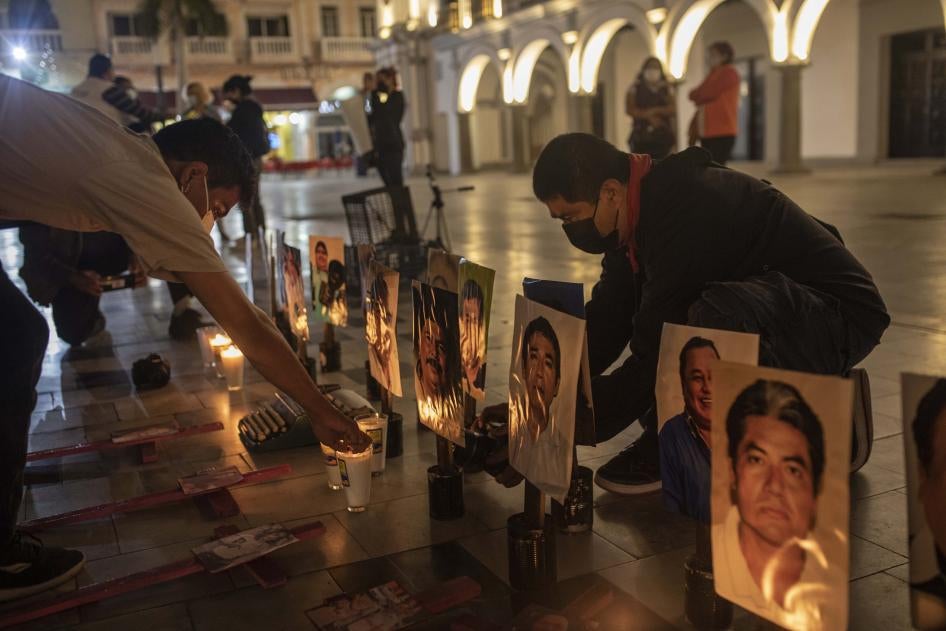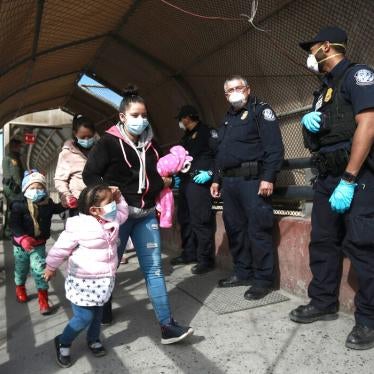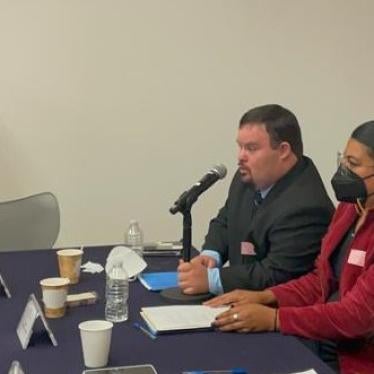(Washington DC) – Escalating violence against journalists in Mexico is seriously undermining press freedom, Human Rights Watch said today, on World Press Freedom Day. President Andrés Manuel López Obrador should take urgent steps to strengthen the federal government protection mechanism, stop official harassment of journalists who criticize the government, and ensure prosecutors end the near-total impunity for these crimes.
Eight journalists have been killed so far in 2022 in Mexico – more than of the number of media workers who were killed in 2021, and ranking Mexico second only to Ukraine, where at least 12 have been killed covering the war, according to the Committee to Protect Journalists. At least 33 journalists have been killed in relation to their work since President López Obrador took office in December 2018, according to the press freedom group Article 19, which tracks these killings.
“This year is on track to be the deadliest ever for journalists in Mexico,” said Tyler Mattiace, Americas researcher at Human Rights Watch. “President López Obrador has not only failed to address violence against the media, but he has used his daily morning news conferences to harass and intimidate journalists.”
Mexico is one of the most dangerous countries in the world for journalists in terms of the number killed every year. Mexican officials rarely, if ever, investigate these crimes or prosecute those responsible. The federal government’s protection mechanism for journalists has struggled to meet protection needs.
Impunity is the norm for most crimes in Mexico, including killings of journalists. Of the 105 investigations into killings of journalists conducted by the federal Special Prosecutor for Crimes Against Freedom of Expression (FEADLE), since its creation in 2010, just six have led to homicide convictions. In the face of such violence, many journalists self-censor.
López Obrador administration officials have displayed the names and photos of people who they allege are responsible for killing journalists or other offenses during the president’s daily morning news conferences, often alongside messaging about “zero impunity.” Usually, these individuals have been detained by state or federal authorities, but have not yet been tried or convicted for these crimes, and sometimes have not appeared before a judge.
This show of law enforcement activity is not a guarantee that the killings of journalists will be brought to justice, Human Rights Watch said. Most of these cases never advance beyond the initial investigation, even when authorities have identified a suspect. Only 2.5 percent of all criminal investigations in Mexico led to an indictment in 2020, and just under .3 percent went to trial, according to México Evalúa, a research organization. Around 95 percent of all crimes nationwide go unresolved, according to México Evalúa.
President López Obrador has also adopted a hostile attitude toward independent journalists. He often singles out journalists who are critical of his administration, displaying their names and other personal information during his daily morning news conferences and accusing them of being “corrupt” or “criminals,” in an apparent attempt to harass and intimidate them.
The federal government and states operate protection mechanisms for journalists and human rights defenders. These mechanisms provide camera systems, panic buttons, police protection, and relocation assistance for journalists under threat. The federal mechanism, created in 2012, covered 521 journalists and 1,045 human rights defenders under threat as of April 29, 2022.
These mechanisms play an important role but have serious flaws and have been unable to meet all protection needs, Human Rights Watch said. The federal protection mechanism regularly runs out of funding and is chronically understaffed, leading to delays, members of its governing body have told Human Rights Watch. This is compounded by the fact that the number of people seeking protection has nearly doubled since 2018. And the mechanism often struggles to coordinate with state and local officials, according to an assessment by the Mexico office of the UN High Commissioner for Human Rights (OHCHR) in 2019.
Nine journalists have been killed while receiving protection from the federal government, the majority of them during the López Obrador administration, a representative of the federal mechanism told Human Rights Watch. In other cases, journalists requested protection from the government but were killed before they received it, according to the Committee to Protect Journalists.
The López Obrador administration has proposed a major overhaul of the protection system and says it is planning to send a reform bill to Congress in September. Officials have not yet released the proposed text. Such a reform could improve protection in Mexico, but only if it addresses the serious challenges in the current system that have been identified by OHCHR and others, Human Rights Watch said.
The Inter-American Commission on Human Rights’s special rapporteur for freedom of expression has said that López Obrador should stop trying to intimidate the media and should recognize the crisis of violence against journalists in Mexico. The OHCHR, in 2019, recognized that official harassment is a structural factor contributing to violence against journalists, and said that the López Obrador administration should lead a national campaign recognizing the positive role of journalists and human rights defenders in society.
Governments have an international legal obligation to protect press freedom, including by taking measures to prevent attacks on journalists and ensuring that these attacks are investigated and brought to justice.
“Every day, brave journalists across Mexico put themselves at risk of violence or death to do their jobs and keep people informed,” Mattiace said. “Instead of attacking and vilifying them, President López Obrador should have their backs.”









